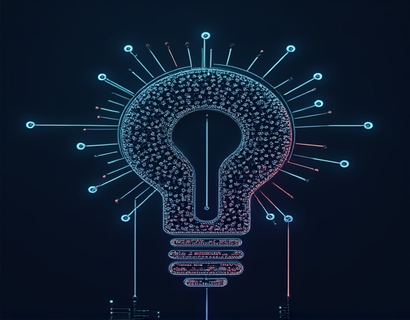AI Chat Interface: Your Intelligent Guide to Lawyer Services and Legal Knowledge
The integration of Artificial Intelligence (AI) in the legal sector has ushered in a new era of accessibility and efficiency for both legal professionals and the general public. An AI chat interface stands at the forefront of this revolution, offering a sophisticated tool that bridges the gap between complex legal information and the end-user. This platform leverages intelligent AI technology to connect users with essential legal insights, streamlining the process of accessing lawyer services and industry knowledge. It is designed to empower individuals and professionals with the information they need to make informed and confident decisions.
The Need for AI in Legal Services
The legal field is notoriously complex, with intricate laws and regulations that can be daunting for the average person to navigate. Traditional methods of seeking legal advice often involve lengthy consultations, high costs, and a steep learning curve. The introduction of AI chat interfaces addresses these challenges by providing a user-friendly, efficient, and cost-effective solution. These interfaces use natural language processing and machine learning algorithms to understand user queries and provide relevant legal information and guidance.
How AI Chat Interfaces Work
At the core of an AI chat interface is a combination of natural language understanding (NLU) and natural language generation (NLG). NLU allows the system to comprehend and interpret user inputs, while NLG enables the system to generate coherent and contextually appropriate responses. When a user interacts with the chat interface, the AI analyzes the query, cross-references it with a vast database of legal knowledge, and provides a tailored response. This process is continuous, allowing the AI to refine its answers based on user feedback and interactions.
Access to Lawyer Services
One of the primary functions of an AI chat interface is to connect users with the right lawyer services. By inputting specific details about their legal needs, users can receive a list of qualified attorneys who specialize in the relevant area of law. The AI can filter and rank these attorneys based on factors such as experience, ratings, and proximity, making the search process efficient and effective. This feature is particularly beneficial for individuals who may not have the time or resources to conduct extensive research on their own.
Legal Knowledge and Education
Beyond connecting users with lawyers, AI chat interfaces serve as a comprehensive resource for legal education. Users can access a wide range of legal articles, guides, and FAQs covering various topics such as contract law, intellectual property, family law, and more. The AI can provide summaries, explanations, and even predict potential outcomes based on case law and legal precedents. This educational component is crucial for empowering users with the knowledge they need to understand their legal rights and options.
Simplifying Legal Decision-Making
The complexity of legal issues often leads to decision paralysis, where individuals and professionals struggle to make informed choices. An AI chat interface simplifies this process by breaking down complex legal concepts into understandable terms. Users can explore different scenarios, consider various legal pathways, and receive guidance on the potential implications of each choice. This level of support ensures that users are not only informed but also confident in their decisions.
Enhancing Legal Access for Underserved Populations
One of the most significant impacts of AI chat interfaces in the legal sector is their potential to enhance access to justice for underserved populations. Many people, due to financial constraints or lack of legal literacy, are unable to seek the legal help they need. AI chat interfaces can bridge this gap by providing free or low-cost legal information and guidance. This democratization of legal knowledge helps level the playing field, ensuring that everyone has the opportunity to navigate the legal system effectively.
Integration with LegalTech
The rise of LegalTech has been instrumental in the development and implementation of AI chat interfaces. LegalTech encompasses a broad range of technologies and innovations aimed at improving legal services and processes. AI chat interfaces are a prime example of LegalTech in action, leveraging advanced algorithms and data analytics to enhance the legal experience. The integration of these technologies not only improves efficiency but also fosters innovation, leading to new solutions and services that were previously unimaginable.
Benefits for Legal Professionals
While AI chat interfaces are designed to benefit end-users, they also offer significant advantages for legal professionals. Lawyers can use these platforms to manage client inquiries, provide preliminary advice, and filter potential cases. This can help reduce the administrative burden, allowing lawyers to focus more on high-value tasks such as case preparation and advocacy. Additionally, AI can assist in legal research, identifying relevant case law and statutes, and even predicting case outcomes, thereby enhancing the overall quality of legal services.
Challenges and Considerations
Despite the numerous benefits, the implementation of AI chat interfaces in the legal field is not without challenges. One of the primary concerns is the accuracy and reliability of the information provided. Legal issues are highly nuanced, and misinterpretation can lead to incorrect advice. To mitigate this, continuous training and updating of the AI models are essential. Additionally, ensuring user privacy and data security is paramount, as legal information is sensitive and must be handled with the utmost care.
Future Prospects
The future of AI chat interfaces in the legal sector looks promising. As AI technology continues to advance, these interfaces will become even more sophisticated, capable of handling more complex legal queries and providing deeper insights. The integration of AI with other technologies, such as blockchain and the Internet of Things (IoT), could further enhance the legal experience, making it more seamless and secure. The potential for AI to revolutionize the legal industry is vast, and the ongoing development of these interfaces will play a crucial role in shaping the future of legal services.
Conclusion
In conclusion, AI chat interfaces represent a significant leap forward in making legal services more accessible, efficient, and user-friendly. By providing a direct line to essential legal information and connecting users with the right legal professionals, these interfaces empower individuals and professionals to navigate the legal landscape with confidence. As the legal industry continues to embrace LegalTech, AI chat interfaces will undoubtedly become an indispensable tool, driving innovation and improving the overall legal experience.










































